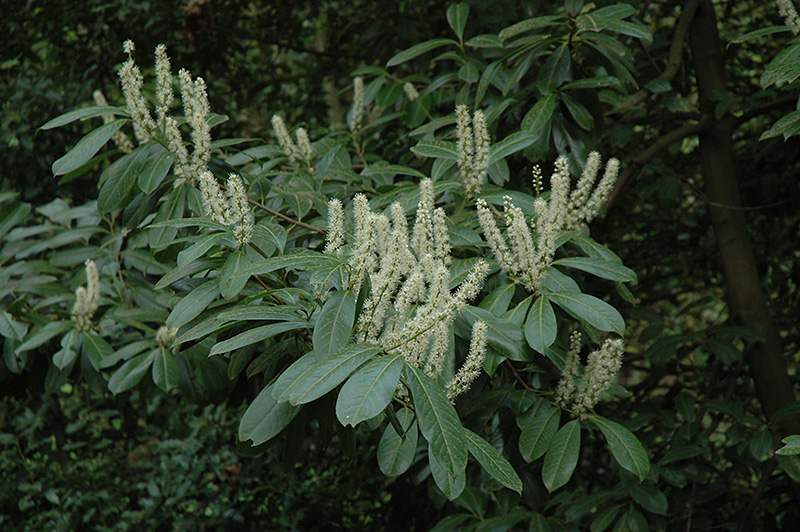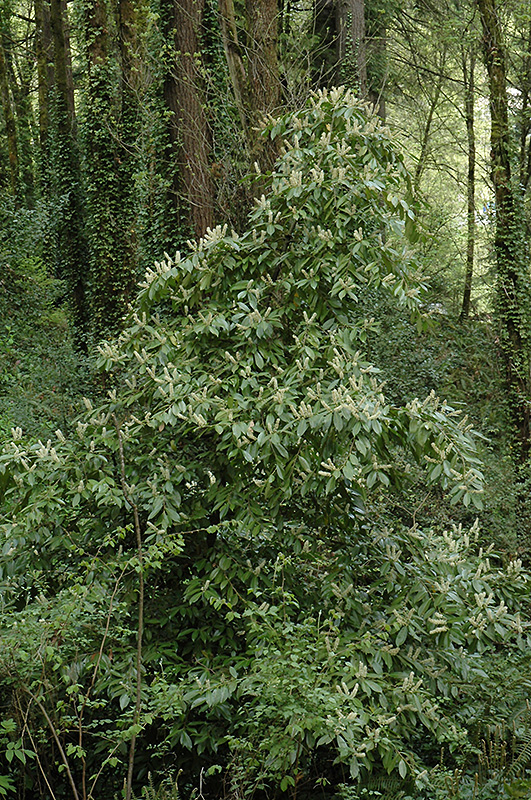Height: 15 feet
Spread: 20 feet
Sunlight:
![]()
![]()
Hardiness Zone: 5b
Other Names: English Laurel, Common Laurel
Description:
This beautiful shrub can be grown as a single or multi-stemmed small tree or a large dense shrub; produces showy, fragrant, erect white spike flowers, black fruit and very shiny dark-green leaves, takes pruning very well
Ornamental Features
Cherry Laurel features showy racemes of fragrant white flowers rising above the foliage in mid spring. It has attractive dark green evergreen foliage. The glossy pointy leaves are highly ornamental and remain dark green throughout the winter. The fruits are showy black drupes displayed in mid summer.
Landscape Attributes
Cherry Laurel is a multi-stemmed evergreen shrub with a more or less rounded form. Its average texture blends into the landscape, but can be balanced by one or two finer or coarser trees or shrubs for an effective composition.
This is a relatively low maintenance shrub, and should only be pruned after flowering to avoid removing any of the current season's flowers. It is a good choice for attracting birds to your yard. It has no significant negative characteristics.
Cherry Laurel is recommended for the following landscape applications;
- Accent
- Hedges/Screening
- General Garden Use
Planting & Growing
Cherry Laurel will grow to be about 15 feet tall at maturity, with a spread of 20 feet. It has a low canopy, and is suitable for planting under power lines. It grows at a medium rate, and under ideal conditions can be expected to live for 50 years or more.
This shrub does best in full sun to partial shade. It does best in average to evenly moist conditions, but will not tolerate standing water. It is not particular as to soil pH, but grows best in rich soils, and is able to handle environmental salt. It is highly tolerant of urban pollution and will even thrive in inner city environments. This species is not originally from North America.


